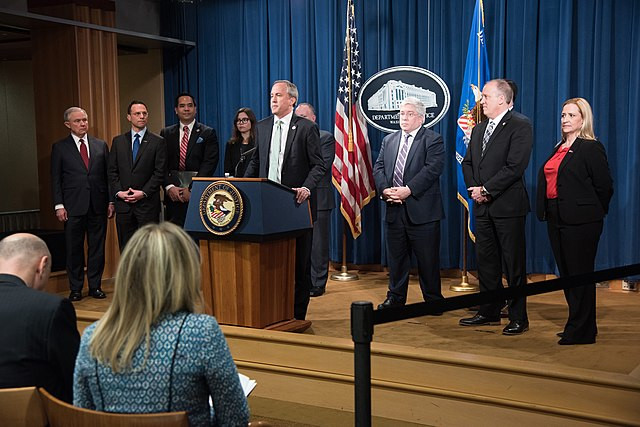In a move that has intensified the ongoing debate over voting rights in Texas, Attorney General Ken Paxton's office has conducted a series of raids targeting prominent members of the Latino community, including key figures from the League of United Latin American Citizens (LULAC). The raids, aimed at uncovering alleged voter fraud, have sparked significant controversy and accusations of political intimidation.
The operations, which began on August 20, have focused on several prominent Latino activists and Democratic figures in South Texas. Among those targeted were Manuel Medina, the chair of the Tejano Democrats, and Lidia Martinez, an 87-year-old LULAC member. The raids have drawn criticism from civil rights organizations and sparked protests across the state.
In a detailed letter to the Department of Justice, LULAC, the nation's oldest Latino civil rights organization, has accused Paxton's office of conducting illegal searches and violating the Voting Rights Act. LULAC CEO Juan Proaño and national president Roman Palomares denounced the raids as a continuation of a troubling history of voter suppression. "These actions echo a troubling history of voter suppression and intimidation," they wrote, citing the raids as a direct attack on Latino civic engagement.
The Texas Attorney General's office announced the raids as part of a broader investigation into allegations of voter fraud and illegal voter registration practices. According to Paxton's office, the investigation was prompted by a referral from the 81st Judicial District Attorney, Audrey Louis, and followed a two-year inquiry into election irregularities. The office has maintained that the raids are necessary to ensure election integrity and prevent voter fraud.
However, the aggressive tactics employed during the raids have fueled accusations of political motivation. LULAC officials have reported that during the raids, law enforcement seized personal electronics, documents, and voter registration materials from the homes of targeted individuals. Martinez, who has been a dedicated LULAC member for over three decades, described a distressing encounter where nine officers, armed and in tactical gear, executed a search warrant at her San Antonio home. "This is a free country, this is not Russia," Martinez said at a press conference, condemning the raid as an effort to intimidate and suppress Latino voters.
The situation was similarly troubling for Manuel Medina. According to LULAC, Medina's home was forcibly entered by officers who spent several hours searching the property and seizing numerous electronic devices. Medina's attorney has since filed for an injunction to prevent further review or dissemination of the seized materials, highlighting the invasive nature of the searches and the significant impact on Medina's personal and professional life.
The raids have also extended to other political figures and activists. State House candidate Cecilia Castellano and Dilley Mayor Mary Ann Obregon reported similar experiences, with Castellano's phone being confiscated and Obregon expressing distress over the sudden and intrusive nature of the search at her home. These actions have led to heightened scrutiny and calls for a federal investigation into Paxton's methods and motivations.
Critics argue that the raids are part of a broader strategy to undermine Latino political influence and suppress voter turnout. Domingo Garcia, former LULAC president, and current head of a newly formed LULAC political action committee, emphasized the historical context of such actions. "There is no poll tax. There is no white-only primary. There is no going back," Garcia said, underscoring the ongoing struggle for equitable voting rights.
Paxton, who has been vocal in his claims about widespread voter fraud, particularly involving noncitizens, defended the raids as necessary for maintaining electoral integrity. His statements, which include unsubstantiated claims about illegal voting practices and foreign influence, have been widely criticized for lacking evidence and contributing to a climate of fear and mistrust among voters.






